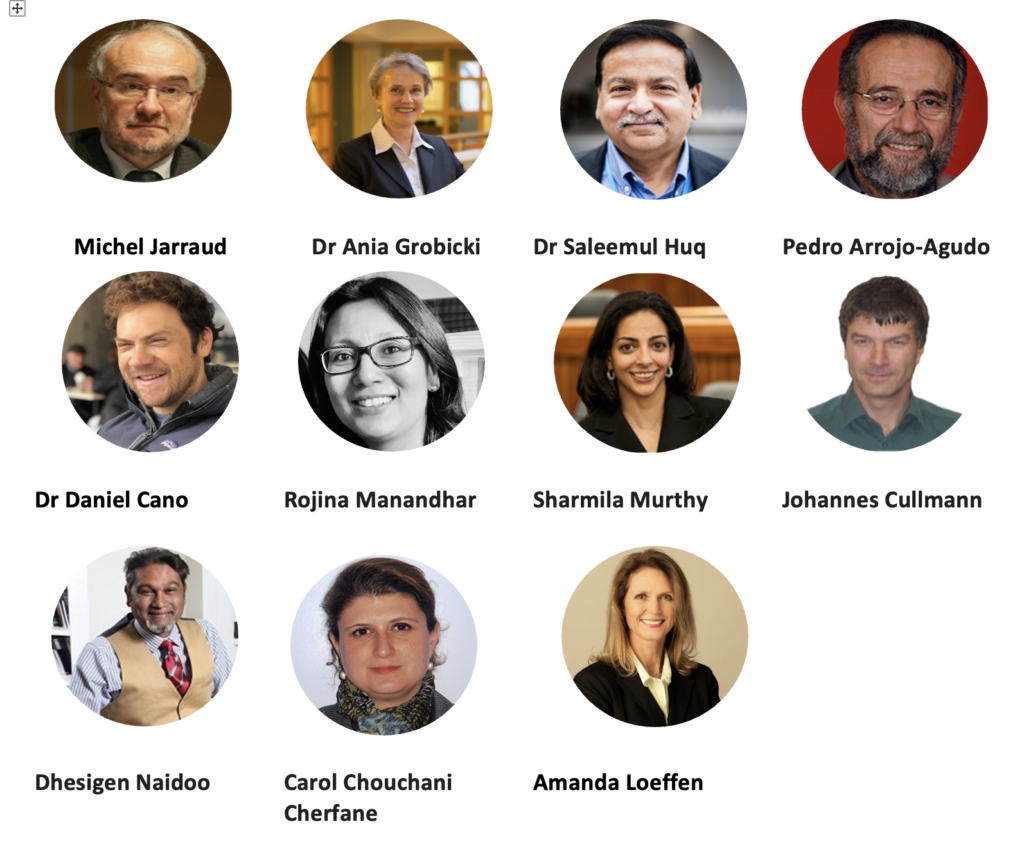Webinar 14th July 2021, 14:00h- 16:00h CET
In this webinar we bring together global leaders and experts on the topic of human rights to water and sanitation, and resilience to climate and health emergencies. It is preparation for a meeting at COP26 this November, and the outcomes of this preliminary webinar will be used to generate support and advocacy for governments to take a proactive role in preventing people from suffering from the impacts of large-scale emergencies. This proposal is based on outcomes from the research that has supported the Declaration, launched by the Expert Committee of Human Right 2 Water at this online event.
At the start of the 2020 pandemic many countries rushed to introduce emergency decrees, legislative fixes, and other policies to protect people’s human rights to water and sanitation. Most countries had not anticipated a public health emergency of this kind, and their existing legal framework failed to take account of the stresses on water in emergency situations. While wellmeaning, these rushed decisions may lead to unintended outcomes. For example, in Brazil, the removal of disconnections due to inability to pay meant that there was a huge over-consumption of water in response, and they ran out of water. Maintaining protection of the human right to water, while balancing the need to support the vulnerable sections of society, therefore requires detailed planning to ensure that affordability and continuity of supply are both fully considered.
The increasing incidence of climate-related emergencies such as floods and droughts require a similar emergency planning approach, to safeguard the human rights to water and sanitation.
“Resilience” in this case describes the ability to protect human rights to water and sanitation (HRWS), to health, and to a healthy environment under emergency conditions. We consider the law implicit in the HRWS as a benchmark to measure a state’s ability to manage pandemics, climaterelated events, and other disasters, and to protect people’s access to safe and sustainable drinking water and sanitation.
The Expert Committee of Human Right 2 Water has developed a Declaration to share a set of principles that can inform policymaking going forward, for decisionmakers to be better prepared to protect the human rights to water and sanitation in the next emergency.
This Declaration is informed by the analysis of the law of 22 countries in the period from June 2020 to February 2021, examining how they integrated specific criteria of the human rights to water and sanitation to limit the spread of disease and protect people from violation of their rights. The results of this study provide a set of results (see annexes for methodology and results) that illuminate trends and shortfalls in the integration of emergency planning, regulatory, policy and legal tools — markers that can be useful in all kinds of emergencies related to climate risk, pandemics, and other disasters.
Read more about our panellist here.



